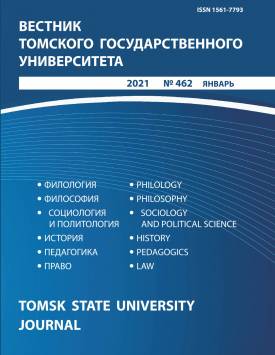The Algorithm of the Investigator's Actions in Typical Situations of Internet Fraud Investigations
The article considers the creation of theoretical and applied provisions for supplementing and improving the methodology of Internet fraud investigations. The aim of the study was to identify typical situations of investigation of these crimes and to develop the algorithm of the investigator's actions in these situations. The methodological basis of the research was the dialectical method, modeling, the system-structural method, the specific sociological method, the method of expert assessments, logical methods. The situational approach was used. Considering the peculiarities of making tactical and managerial decisions at various stages of the investigator's activity in Internet fraud investigations, the typical situations of checking crime reports and of the initial and subsequent stages of the investigation have been identified. The determination of typical investigative situations at each of the indicated stages was based on the results of the study of materials of judicial practice in criminal cases on Internet frauds, a survey of investigators on the problems of investigating these crimes. It has been revealed that the stage of checking the report of Internet fraud, depending on the source and amount of information, is characterized by two situations: either by the lack of primary information about the presence of signs of a crime (95%), or, conversely, by information sufficient to make a final procedural decision (5%). The initial stage of the investigation of Internet fraud, depending on the content of the initial information, is characterized by situations determined by the presence (80%) or absence (17.5%) of identified digital footprints in conjunction with the establishment of the method of committing a crime, victims and witnesses, the lack of information about the fraudster. A far less likely situation is characterized by the establishment of digital footprints, the method of committing a crime, victims and witnesses, the presence of some information on the criminal, but the lack of data about his/her location (2.5%). Three typical situations of the subsequent stage of the investigation of these crimes are classified depending on the degree of the confession of guilt by the accused and the sufficiency of evidence. The most common situation is characterized by the confession of guilt by the accused and the availability of necessary evidence in the case (90%). In each typical situation, the algorithm of the investigator's actions is determined, methodological recommendations on the tactics of individual investigative actions are developed taking into account the specifics of the crimes committed. Particular attention is paid to the issues of working with digital footprints, the necessary software and hardware are indicated; to the features of the tactics of inspecting the scene, mobile and computer devices; to the determination of the issues to be clarified during the interrogation of the accused, victims, witnesses.
Keywords
Internet, fraud, cybercrime, typical investigative situations, investigationAuthors
| Name | Organization | |
| Malykhina Natalya I. | Saratov State Academy of Law | nim1707@yandex.ru |
| Kuzmina Svetlana V. | Consulting Plus, LLC | kuz44ina.svet@yandex.ru |
References

The Algorithm of the Investigator's Actions in Typical Situations of Internet Fraud Investigations | Vestnik Tomskogo gosudarstvennogo universiteta – Tomsk State University Journal. 2021. № 462. DOI: 10.17223/15617793/462/29
